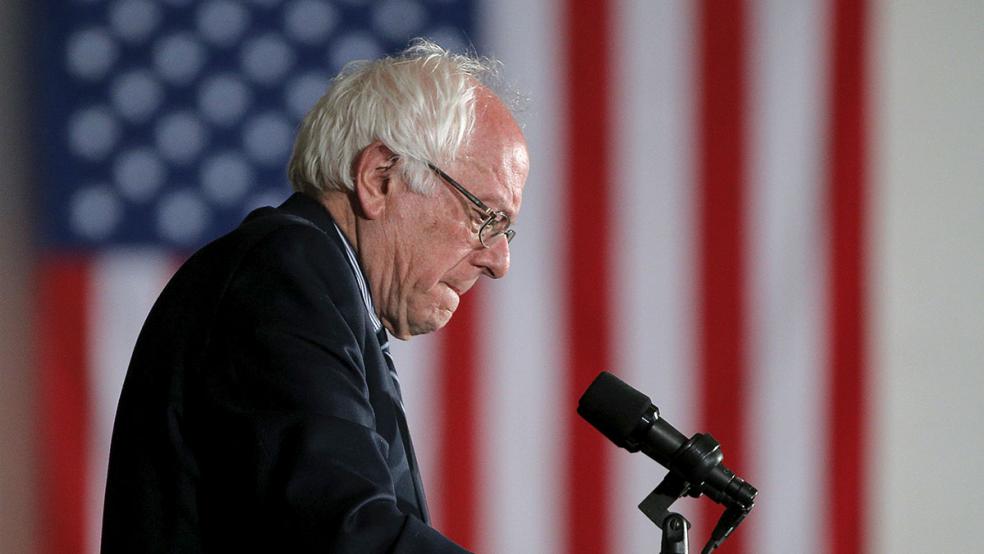As the Republican electorate coalesces with varying degrees of enthusiasm around presumptive presidential nominee Donald trump, the billionaire’s poll numbers have been improving. Climbing first to within the margin of error in many national polls, Trump has now surpassed Clinton, and today for the first time took the lead (by 0.2 percentage points) in the Real Clear Politics polling average.
There are plenty of reasons to discount the poll numbers at this point in the race. It’s only May, and the election isn’t until November. And in the United States, the president isn’t elected in a national election, but rather by the more complicated Electoral College system.
Related: Clinton Still Can’t get Sanders to Give It Up
There is also the matter of Bernie Sanders. The Vermont senator, who has virtually no chance of winning the Democratic nomination, is remaining in the race anyhow and throwing some pretty sharp elbows at Clinton who declared herself the effective nominee last week.
Sanders has won 21 states so far, and has vowed to continue his campaign up until the convention. The big question for Clinton now is: What percentage of the Bernie vote can she count on getting in November, and what percentage are so angry at her over real and perceived maneuvering during the campaign that they will either vote for Trump or vote for neither of the major party candidates?
In a poll late last month, McClatchy News Service found that up to a quarter of Sanders supporters said they would withhold support from Clinton in a general election.
“One out of four Sanders supporters– 25 percent – say they would not back Clinton in a general election if she became the Democratic nominee for president, while just 69 percent say they would support her,” the survey revealed.
Related: Clinton -- Trump’s Not Qualified, and Sanders Is Done
However, while that sounds terrible, a little perspective is important. At this point in the 2008 Democratic primary, after an increasingly acrimonious battle between Clinton and then-Sen. Barack Obama, the numbers were even worse. Not 25, but 35 percent of Hillary supporters said that they would stay home or vote for Republican nominee John McCain in November.
In the end, resistance to Obama weakened within the party, helped along by an endorsement of the nominee by both Clinton herself and her husband, former president Bill Clinton.
It seems safe to assume that a similar dynamic will play out, at least to some extent, with Sanders supporters in November. Sanders himself has preemptively promised to support Clinton in a general election fight against Trump, and presumably he can convince many of his backers to follow suit.
However, there will no doubt be an element of Sanders supporters who cannot bring themselves to back the Democratic nominee. The Bernie-or-Bust movement is real and seems pretty determined, and a recent YouGov poll found that among Sanders supporters, Clinton is viewed unfavorably by 61 percent -- that’s higher than her unfavorable rating with the general public, including Republicans.
Related: Get Ready for a third Party Run from Bernie Sanders
At FiveThirtyEight.com, Nate Silver points out another potentially troubling fact for Clinton. Sanders’ support is very strong among Democratic-leaning independent voters, and that group is especially opposed to Clinton. While north of 80 percent of self-identified Democrats back Hillary against Trump, that number plunges into the low-to-mid 30s among self-identified Independents.
So, Clinton can expect poll numbers to swing back in her direction once she officially wraps up the nomination. But how far they will swing, and how much of a cushion they would give her in a general election against Trump appears to depend very much on how she does with those Bernie-supporting independents.
As Silver puts it, “If Clinton wins over those voters, she’ll gain a few percentage points on Trump in national and swing state polls, and the race will potentially look more like it did in March and April, with Clinton having a fairly comfortable lead over Trump. If not, the general election could come down to the wire.”





